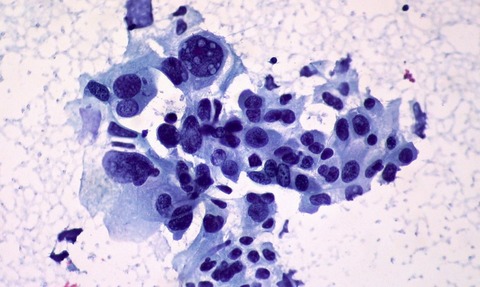Cancer survival in England 'improving'
26 Aug 2014

Improved survival results point to better early stage diagnosis of several types of cancer, Public Health England (PHE) says.
According to new data published today by PHE’s national cancer intelligence network, cancer survival in England for breast, lung, prostrate, colorectal and ovarian cancer is continuing to improve.
The study draws on advances in the quality and completeness of cancer staging data and the timeliness of the information gathered through the National Cancer Registration Service (NCRN), PHE said.
Our ambition is to raise our survival rates to match the very best in Europe
NHS England’s Sean Duffy
Today’s PHE report is based on data taken from a one-year survival analysis for patients in England first diagnosed in 2012.
Director for disease registration at PHE’s NCRN Jem Rashbass said: “It is only by having data of this quality that we can hope to understand where we are making progress on cancer diagnosis and treatment and where to focus our efforts, but we are not complacent as there is still more to be done.”
The study shows that lung cancer survival has risen from 28% to 36.3%, ovarian cancer survival from 68.1% to 74.7%, colorectal cancer survival from 71.5% to 77.7%, prostate cancer survival from 93.1% to 96.6% and breast cancer survival from 94.8% to 96.4%.
For breast, prostate, and colorectal cancer age standardised one-year survival is above 90% for stage 1 to 3 tumours - with substantially lower survival only for stage 4, data suggests.
Unfortunately, for lung and ovarian tumours there is a marked drop in survival with each increase in stage.
“This report shows we cannot underestimate the importance of early diagnosis - the earlier cancer is spotted, the better the outcome. We will continue to do all we can to keep improving for the benefit of all cancer patients,” said Sean Duffy, national clinical director for cancer at NHS England.
“Our ambition is to raise our survival rates to match the very best in Europe.”

